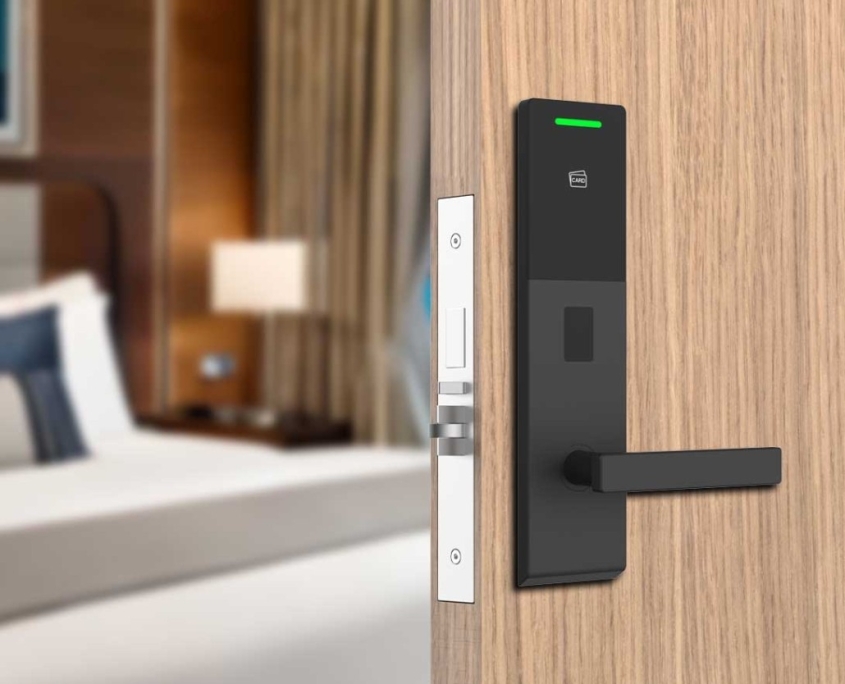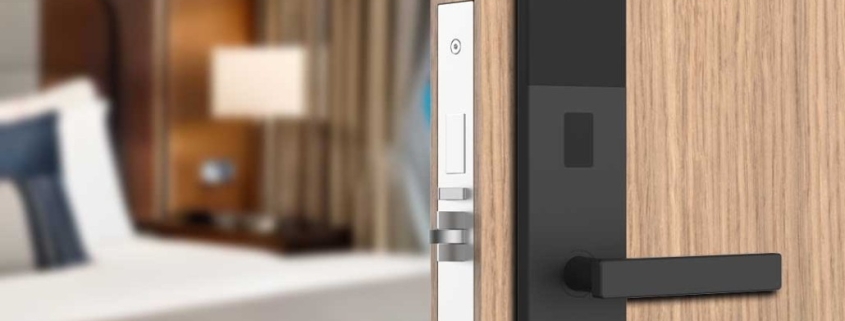How Do Hotel Room Door Locks Work?
When you check into a hotel, the door lock is your first line of defense against unauthorized access. Unlike traditional home locks, modern hotel security systems combine advanced technology with user-friendly features to protect guests while streamlining operations.
This guide will explain:
-
The different types of hotel door locking mechanisms
-
How electronic key cards and digital access systems function
-
The security protocols that keep guest rooms safe
-
Emerging trends in hospitality access technology
Whether you’re a frequent traveler curious about hotel security or a property manager researching upgrades, this comprehensive overview will give you valuable insights.
1. Types of Hotel Room Door Locks
A. Mechanical Locks (Traditional Key Systems)
While rare in modern hotels, some older properties still use:
-
Mortise locks: Heavy-duty mechanisms requiring physical keys
-
Tubular locks: Common in budget accommodations
Why they’re being phased out:
-
Keys can be easily duplicated
-
No way to track access
-
Requires complete lock replacement if keys are lost
B. Magnetic Stripe Card Locks
The transitional technology between metal keys and modern systems:
-
Operation: Plastic cards with magnetic strips (similar to credit cards) are encoded at check-in
-
Activation: Swiping the card through a reader aligns magnetized particles to grant access
Advantages:
-
Cost-effective solution
-
Cards can be reprogrammed for new guests
Disadvantages:
-
Stripe degrades with use
-
Vulnerable to demagnetization
-
Limited security features
C. RFID (Radio Frequency Identification) Locks
The current industry standard for mid-range to upscale properties:
-
Contactless operation: Guests tap cards near the reader
-
Enhanced security: Encrypted data transmission
-
Durability: No moving parts to wear out
Technical specifications:
-
Frequency: Typically 125kHz or 13.56MHz
-
Read range: 2-4 inches (5-10cm)
-
Memory capacity: Stores multiple access permissions
D. Mobile Access Systems
The cutting edge of hotel security:
-
Bluetooth Low Energy (BLE): Works through hotel apps
-
NFC technology: Smartphone tap-to-open functionality
-
Cloud integration: Remote access management
Adoption rates:
-
78% of luxury hotels now offer mobile key options
-
42% of guests prefer digital keys over physical cards (2023 hospitality survey)
E. Biometric Systems
Emerging in high-security environments:
-
Fingerprint recognition
-
Facial recognition technology
-
Palm vein authentication
2. The Technology Behind Electronic Hotel Locks
Lock Hardware Components
-
Reader module: Detects and authenticates credentials
-
Control board: The “brain” that processes access requests
-
Motorized deadbolt: Electronically controlled locking mechanism
-
Power supply: Typically battery-operated with backup options
-
Audit trail memory: Stores entry records
The Authentication Process
-
Credential presentation: Guest presents key card or mobile device
-
Data transmission: Encrypted information is sent to the lock’s processor
-
Permission verification: System checks:
-
Room assignment
-
Valid time window
-
Access level (guest vs staff)
-
-
Access decision: Lock engages or remains secured
Security Protocols
-
128-bit or 256-bit encryption for data transmission
-
Dynamic code generation prevents card cloning
-
Automatic expiration at checkout time
-
Brute force protection against electronic tampering
3. Management Systems and Backend Operations
Property Management System (PMS) Integration
Modern locks connect to hotel software to:
-
Automatically invalidate keys at checkout
-
Grant temporary access for housekeeping
-
Create VIP access profiles
-
Generate security reports
Emergency Overrides
-
Master keys: Open all doors (restricted to management)
-
Emergency open: Fire department access protocols
-
Battery fail-safe: Mechanical override option

4. Advantages Over Traditional Locking Systems
For Guests:
-
No keys to lose or return
-
Instant key replacement if needed
-
Contactless options improve hygiene
-
Personalized access permissions
For Hotels:
-
92% reduction in lock rekeying costs
-
67% faster check-in processes
-
Detailed access logs improve security
-
Remote management capabilities
5. Maintenance and Reliability
Battery Life and Power Management
-
Typical lifespan: 12-18 months
-
Low battery indicators alert staff
-
Most systems allow 50+ openings after warning
Durability Testing
Commercial-grade locks undergo:
-
100,000+ cycle testing
-
Weather resistance certification
-
Vandalism resistance ratings
6. Future Trends in Hotel Security
Emerging Technologies
-
Voice-activated entry (voiceprint recognition)
-
Wearable device integration (smart watches, rings)
-
AI-powered anomaly detection (identifying suspicious access patterns)
Sustainability Initiatives
-
Elimination of plastic key cards
-
Solar-powered locking systems
-
Recyclable components in lock hardware
Conclusion: Balancing Security and Convenience
Today’s hotel door locks represent a perfect marriage of security technology and guest experience design. From RFID systems to mobile access solutions, these intelligent systems protect valuables while offering unprecedented convenience.









